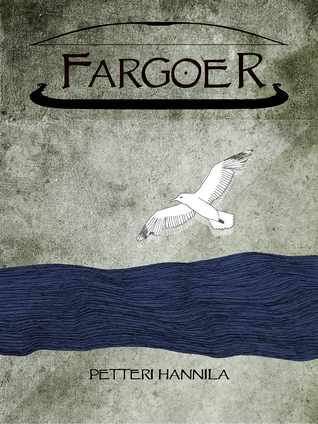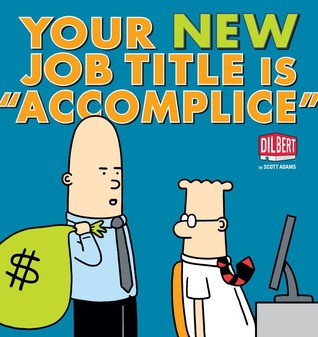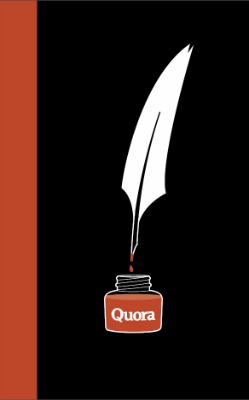I graduated today (read about it here), so in honour of that, here's a review of a book about learning. And school (or not-school).
I'm starting to suspect I'm not normal. I read this book (which is supposedly 'life-changing'), and found myself mentally arguing with the author the whole way. Then again, all the friend's I've showed this book to so far agree with me. So, be warned, this is going to become less of a review and more of a "why I don't agree with this" rant.
Ok, so we start off with an analogy about wanting to eat fruits and learning to eat that no matter how hard I imagine, I cannot accept as being an analogy for school. But if I start a literature analysis this post will double in length so I will stop here.
Before we even reach part one, the authoress says to kids who actually enjoy school "Maybe I have something to learn about docility. Or maybe I have a healthy aversion to something dead in people that should be alive." Wow, I'm insulted and I'm not even in the first chapter. I can't even express how insulting this is to Malala, a brave girl who got shot in the head by Taliban
for going to school. In fact, I call your bluff and say that those who enjoy school are the ones who are really alive. They know what school really means, and don't waste their time complaining. And so, we reach:
Part 1 - Making the Decision
Apparently, rules = lack of freedom, and minors are "one of the most oppressed groups of people in the U.S., and certainly the most discriminated against legally." Here I was under the impression that minors get treated better by the law (look at the penalties for crimes for minors and adults. Look at why that rapist in India is so anxious to be tried as a juvenile). After all, we have a phrase called "kids gloves". It certainly doesn't mean something like "worst every treatment". The freedom they speak of are things like "I don't have to raise my hand to speak", "[In school] you had to have permission to go to the bathroom". I'm sorry, maybe it's because I'm Asian, but how is that restrictive? That's called
having respect for one another. In real life, you don't interrupt a conversation, you find a way to catch your partner's attention (like by raising your hand). In real life, when you're with a group of people, it's normal to excuse yourself to the bathroom.
In Chapter Two, we find out that "School is not for learning". The main arguments are that schools use passive learning, busywork and prioritize appearance over reality. That is how school is? Wow, to think I learnt how to debate in school, how to research a topic of my choice in school, how to think in school. I never knew that was called passive. I never knew the the multiple drafts I wrote for one essay was called busywork. I thought I was learning how to refine my writing skills. I didn't know that whenever my teachers did things like inviting guests to share their experiences with us (for example, what is it like to live in a welfare state?), that was appearance over reality (a favourite literature theme for us anyway).
And look, a quick quiz!
"Which has more books, a school or a library?" Hmm.... most of the time, probably my school. The local library isn't very big, unless you're talking about regional or national libraries. Plus, if you're into researching stuff, school libraries are really helpful (the librarians will help you get the books too!)
"Which has better books, a school or library?" See above.
"Where are you made to read deadly textbooks?" Hey, I LIKE my textbooks. They're actually quite interesting.
"Where can you read at your own pace, for your own pleasure, without being tested and tricked and otherwise disturbed?" My home. But then again, all the books are from the school library.
Oops, I think I gave the wrong answers. I guess I failed your quiz.
Last thing to note: all the teachers I've ever had have always been opinionated. And contradictory. This just means they taught us the difference between facts, opinions, and how to form your own opinion.
Chapter Three: What School is for. Apparently, to churn out workers. True, a lot of entrepreneurs end up dropping out of school, but for me and my friends, school was where we got our first taste of entrepreneurship. When you have to set up a Haunted House yourselves or find a product you can buy and sell at a profit, you learn about things like Supply and Demand really quickly. And no, my teachers weren't hand-holding us (they had a lot of other things to do). And yes, this was compulsory for us.
And then, she starts talking about teachers in Chapter four. The basic thing is that they're all fine people, but they don't teach from the heart.
...
I understand that you were once a teacher, but I'm beginning to thing that despite what you claim, you sought out schools where you would be stifled to prove a point. Either that, or I go to an exceptional school.
And I'm only at page 67 of 444. Do you guys really want me to go on? Bottom line is, the first part is where I disagree with everything. And these are the only things I have reservations from the later sections (which are actually the majority of the book).
There is one section where a European girl (girl living in Europe) reflects on her unschooling experience and mentions that due to the lack of resources, she basically lies to get what she wants. Nice skills for the future you got there.
And another section about Japan, which makes the schools sound terrifying. Well, I haven't gone to a Japanese highschool (I'm in university and all), but most of my high-school friends seem happy enough. I'm guessing that while the bullying and physical punishment do exist, it's for a rather small number of students.
Next, she brings in Yin and Yang (and also, she calls the Dao De Jing the Tao Teh Ching. What's with the "h"? I think the "t" and the "c", while not pinyin, are common ways of spelling - if you're not learning Chinese). I won't say anything about the yin-yang part, but I do want to say something about the section of the Dao De Jing she quotes. The quote is "The Tao Teh Ching reminds us, 'For all things there is a time for going a head, and a time for following behind; a time for slow-breathing, and a time for fast breathing;... A time to be up and a time to be down.' " Even if I'm not talking about how incredible hard it is to understand, let alone translate the Dao De Jing, I think she's mis-using the quote. The original Chinese is this "故物或行或随,或嘘或吹,或强或赢,或载或隳。" If you can't read Chinese, there's a pretty good translation
here (this is from chapter 29). The meaning of this is actually: extremes are bad. Don't go to extremes. The way she uses this quote implies that there's an appropriate time for a certain extreme, but actually, this passage is telling to avoid all extremes and practice moderation. You may call this a subtle difference, but I think it's pretty important.
In other words, the book gets much better as she gets into advice on how to learn different subjects. The potshots at school and teacher get less, and it's much easier to ignore. Still, a lot of what she recommends to "unschool" are things that I either remember doing in school, or that the school offered (sometimes, I didn't bother taking advantage of everything - because I had no interest in it!).
Bottom line, my stand is the same as always: homeschooling is not for everyone. And yes, I carry serious doubts about unschooling. I think that if the child is not intensely self-motivated, unschooling will not work. Even though she claims that you'll be smarter even if you don't do anything, I doubt that will be true. How can you be smarter if you have no interest in reading (poor language skills), maths, etc? If this book didn't have the first section, I would have enjoyed it a lot more. Or to put it another way, if she didn't insult my love for school, my school experience or my teachers, I wouldn't have gotten so emotional.
I realise this is an extremely long review, and I've only touched the tip of the ice-berg! If you want me to write out a full review, chapter by chapter (because I don't think I can summarise it), let me know. I may just do it. And if you strongly disagree with me, please comment and let me know why (no ranting though). If you're really persuasive, you might just convince me(:
 Apparently, because Goodreads was bought by Amazon, Librarything is giving all members one year of unlimited membership. Without going into the "how many sites does Amazon.com own?" debate, this kinda sparked me to give an update of how I'm using the two sites (you can find my first comparison here).
Apparently, because Goodreads was bought by Amazon, Librarything is giving all members one year of unlimited membership. Without going into the "how many sites does Amazon.com own?" debate, this kinda sparked me to give an update of how I'm using the two sites (you can find my first comparison here).



















